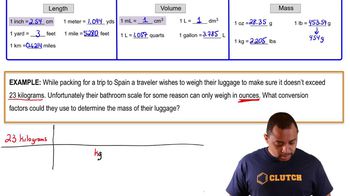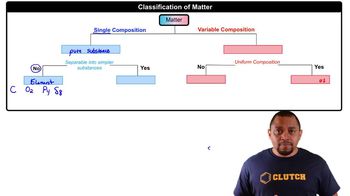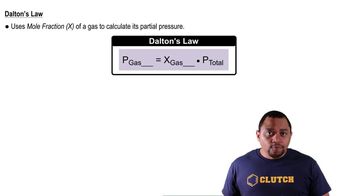Textbook Question
The surface temperature of Venus is about 1050 K, and the pressure is about 75 Earth atmospheres. Assuming that these conditions represent a Venusian 'STP,' what is the standardmolar volume in liters of a gas on Venus?

 Verified step by step guidance
Verified step by step guidance


Assume that you have a cylinder with a movable piston. What would happen to the gas pressure inside the cylinder if you were to do the following? (a) Triple the Kelvin temperature while holding the volume constant
Assume that you have a cylinder with a movable piston. What would happen to the gas pressure inside the cylinder if you were to do the following? (b) Reduce the amount of gas by one-third while holding the temperature and volume constant
Assume that you have a cylinder with a movable piston. What would happen to the gas pressure inside the cylinder if you were to do the following? (c) Decrease the volume by 45% at constant T